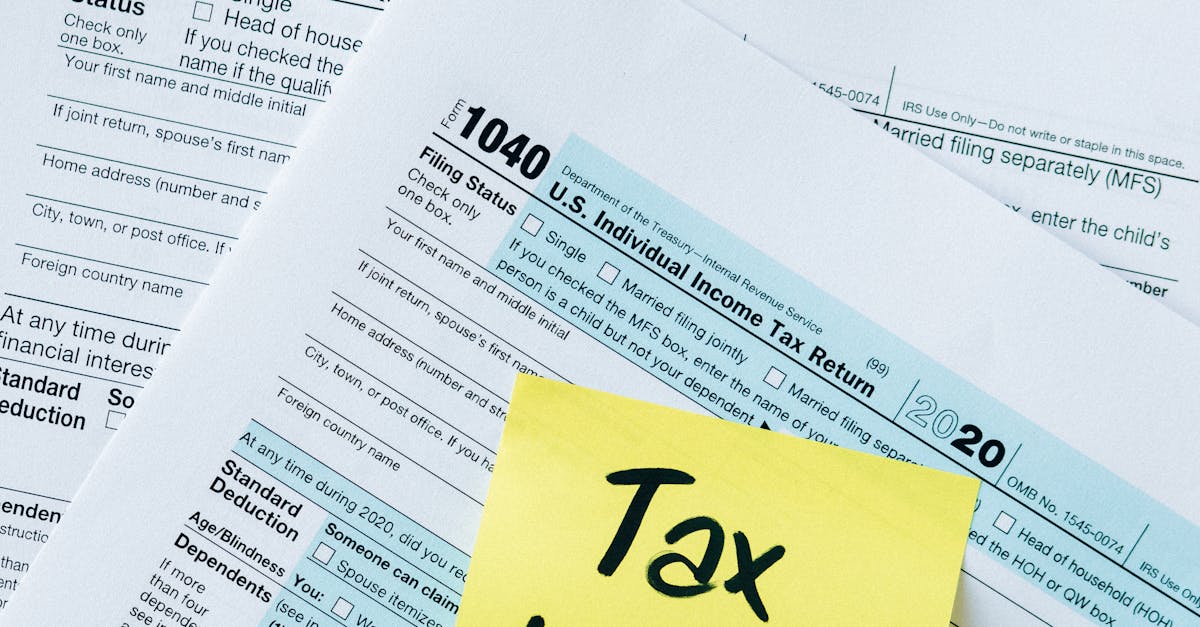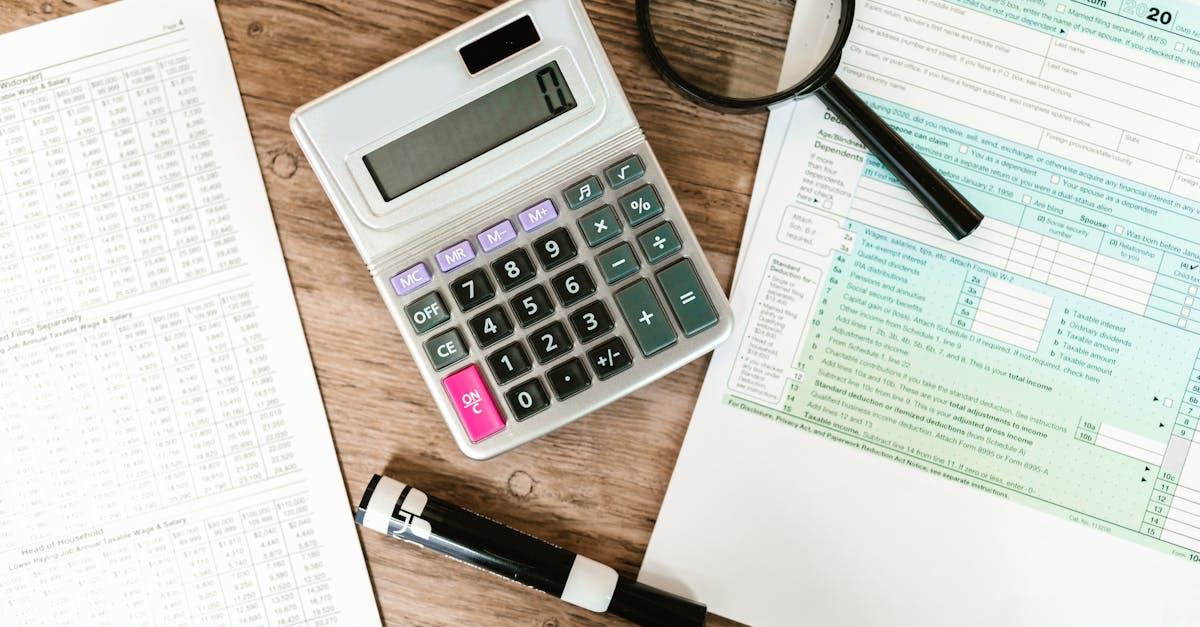
At Lubbock Bookkeeping Services, we understand that tax preparation can be a daunting task for individuals and businesses alike. Our dedicated team of experienced accountants is here to simplify the process and ensure that you maximize your deductions while remaining compliant with the latest tax regulations. We take the time to thoroughly review your financial situation, gather all necessary documentation, and prepare your tax returns with precision and care. Whether you’re a small business owner looking to streamline your tax filings or an individual seeking personalized assistance, our comprehensive tax preparation services are designed to provide peace of mind and help you navigate the complexities of the tax system. Trust Lubbock Bookkeeping Services to handle your tax preparations accurately, efficiently, and with a commitment to your financial success.
How to Choose the Right Accountant
Selecting an accountant is a crucial step in ensuring your tax preparation process runs smoothly. Start by identifying your specific needs. Consider whether your financial situation is straightforward or complex, which may require specialized knowledge. Look for professionals who have experience in handling situations similar to yours. Different accountants may have distinct areas of expertise, so take the time to inquire about their qualifications and experience in relevant tax matters.
Evaluating potential accountants also involves assessing their communication skills and approachability. You want a professional who can explain tax concepts clearly and make you feel comfortable asking questions. Ask for references and reviews from previous clients to gauge their satisfaction and reliability. Additionally, consider logistical factors such as location, availability, and fee structures. Choosing the right accountant can help navigate the complexities of taxes and ensure compliance, ultimately providing peace of mind during tax season.
Factors to Consider When Selecting a Tax Professional
When selecting a tax professional, it is essential to evaluate their qualifications and experience. Look for someone who holds relevant certifications, such as CPA or enrolled agent status. Experience in handling cases similar to yours can be a significant advantage. A thorough understanding of both federal and state tax laws will help ensure that your taxes are prepared accurately and efficiently.
Fees and services offered should also be taken into account. Some professionals charge a flat fee, while others bill by the hour. It is important to understand what services are included in the fee structure. Transparency regarding costs and services can help avoid misunderstandings later on. Additionally, consider their availability for questions or guidance throughout the year, not just during tax season.
The Role of Technology in Tax Preparation
Advancements in technology have transformed the way taxpayers and accountants approach the complex process of tax preparation. Software applications now offer robust features that streamline data entry, automate calculations, and aid in document management. These digital tools not only enhance accuracy but also save time, reducing the potential for human error. Many programs are equipped with features that allow users to import financial data directly from accounts, facilitating a smoother process and providing a comprehensive overview of tax obligations.
The rise of cloud-based solutions has further revolutionized the landscape of tax preparation. These platforms enable secure document sharing and real-time collaboration between clients and accountants, regardless of location. This accessibility allows for quicker responses to inquiries and more efficient handling of any adjustments required. Additionally, the integration of artificial intelligence in tax software can assist in identifying deductions and credits, thus maximizing potential returns. Implementing these technologies leads to a more organized, stress-free tax experience.
Digital Tools to Simplify Your Tax Process
Technology has transformed the way individuals and businesses approach tax preparation. Various digital tools offer innovative solutions that streamline the process, making it easier to manage financial records and comply with tax regulations. Applications designed for tracking expenses can help users categorize their spending, while cloud-based software facilitates easy access to documents from anywhere, ensuring that important information is readily available at tax time.
Additionally, e-filing platforms simplify the submission of tax returns, reducing the risk of errors and expediting processing times. Many of these tools come with built-in calculators to help with self-assessment and provide helpful reminders for important deadlines. By utilizing these digital resources, taxpayers can enhance their efficiency, reduce stress, and save valuable time during tax season.
Understanding Tax Deadlines
Tax deadlines play a crucial role in the tax preparation process. Missing these deadlines can result in penalties, interest charges, and other negative consequences. Taxpayers must be aware of various dates related to filing returns, making payments, and submitting specific forms. The most common deadline for individual tax returns is April 15, but it may vary slightly depending on the year or specific circumstances. Extensions can be requested, but they do not extend the time to pay any taxes owed.
Additionally, businesses have their own set of deadlines that can differ based on their structure, such as partnerships, corporations, or sole proprietorships. Employers must also keep track of payroll tax deadlines to avoid penalties. Being organized and knowledgeable about these important dates can simplify the tax preparation process and help prevent unnecessary stress during tax season. Keeping a calendar or using reminders can aid in staying on top of your tax obligations throughout the year.
Important Dates to Remember
Tax season introduces a series of critical deadlines that taxpayers must acknowledge. The Internal Revenue Service (IRS) typically begins accepting tax returns in late January, allowing individuals and businesses time to prepare their documents. One of the most significant dates is April 15, which is usually the deadline for filing individual income tax returns unless it falls on a weekend or holiday. Understanding these timelines helps taxpayers avoid penalties and ensures they obtain potential refunds promptly.
Filing extensions are available, usually extending the deadline to October 15, but those who file for an extension must still pay any taxes owed by April 15 to avoid interest and penalties. Additionally, different deadlines may apply to businesses, such as March 15 for partnerships and S corporations. Staying informed about these important dates is essential for effective financial planning and compliance with tax regulations.
FAQS
What should I look for when choosing an accountant for tax preparation?
When selecting an accountant, consider their qualifications, experience, areas of expertise, fees, and client reviews. It’s also important to ensure they are familiar with current tax laws and regulations.
How can technology assist in the tax preparation process?
Technology can streamline the tax preparation process by offering digital tools that automate calculations, organize documents, facilitate e-filing, and provide access to tax resources and updates.
What are some digital tools recommended for tax preparation?
Some popular digital tools include tax software like TurboTax and H&R Block, cloud storage solutions like Google Drive for document management, and expense tracking apps such as Expensify.
Why is it important to understand tax deadlines?
Understanding tax deadlines is crucial to avoid penalties, interest charges, and missed deductions. Staying informed helps ensure that you file your taxes timely and take advantage of available credits.
What are the important tax deadlines I should remember?
Important deadlines include the federal tax return filing deadline (typically April 15), estimated tax payment due dates (usually quarterly), and deadlines for specific forms such as W-2 and 1099 submissions.






